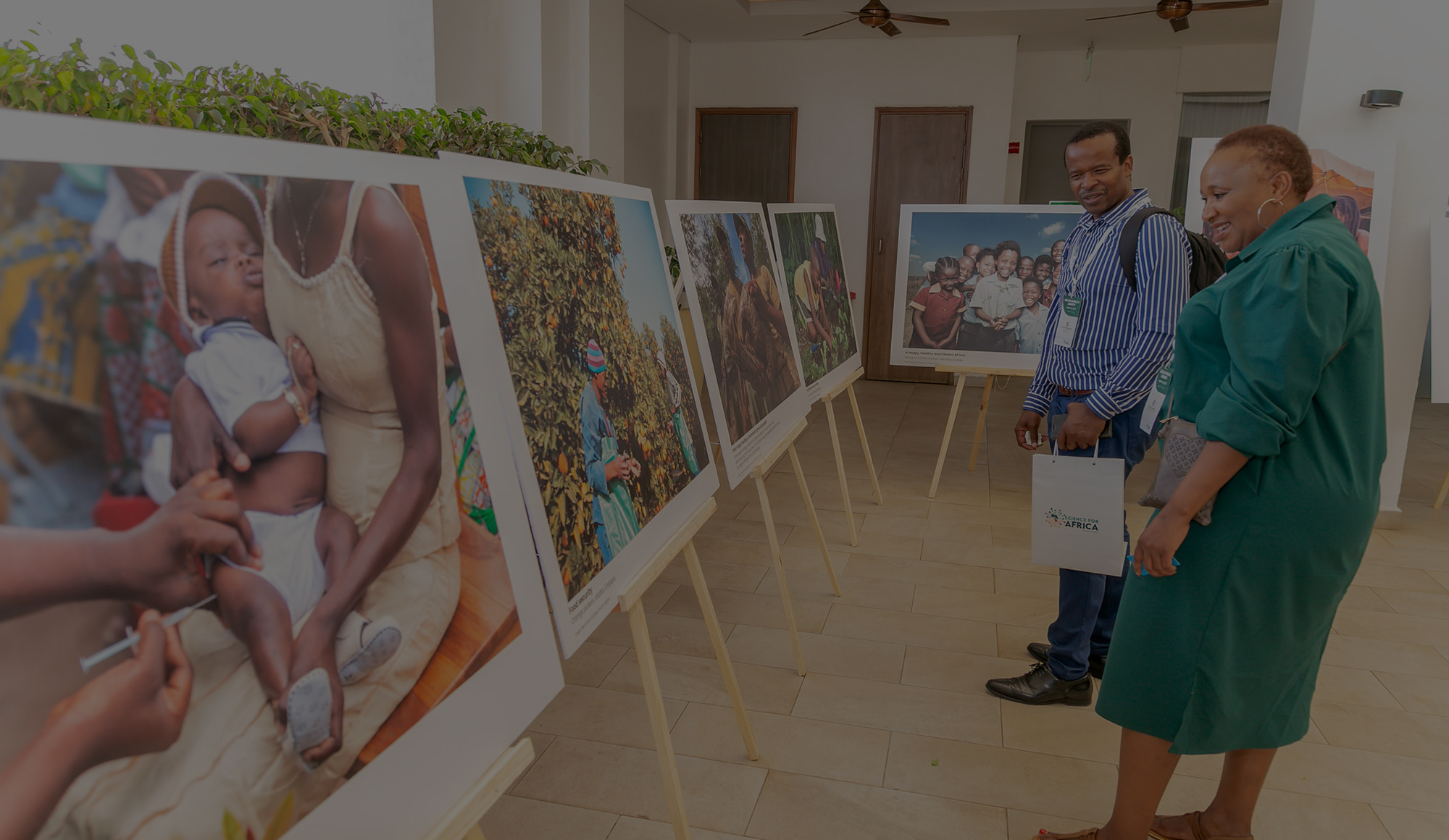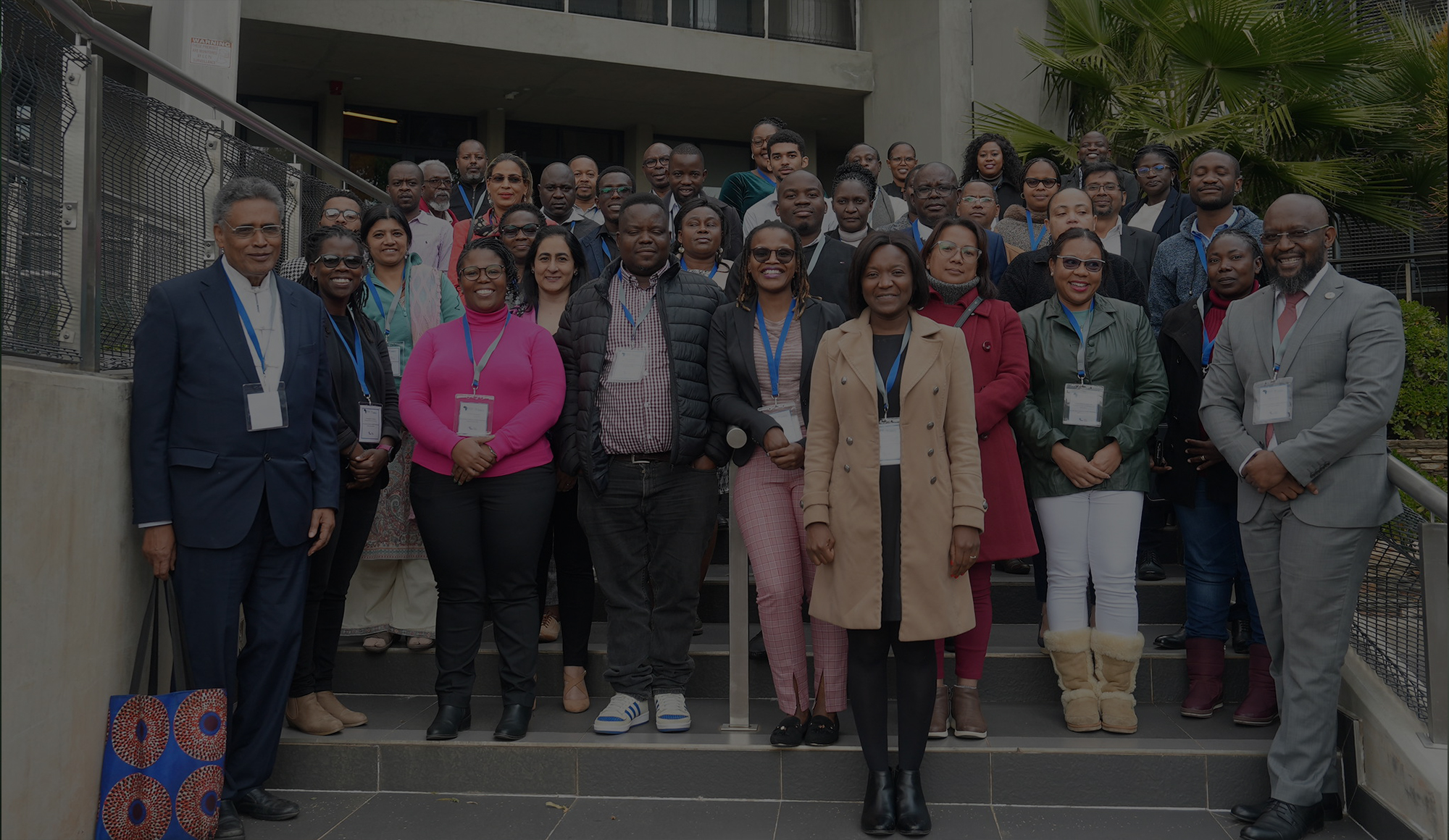
What we do
Our Broad Science Areas
Inter & Multidisciplinary R&D and Science Leadership
The convergence of diverse expertise within the SFA Foundation fosters innovation, generating groundbreaking solutions across fields like healthcare, agriculture, and environmental sustainability. Through collaborative, multidisciplinary efforts, experts collaborate, enhancing their problem-solving abilities and comprehensively addressing complex bioscience challenges. The Foundation aims to cultivate leaders adept at driving innovation, influencing policies, and steering bioscience forward. These leaders, honed through interdisciplinary research, inspire teams, collaborate seamlessly, and lead projects tackling intricate problems, thereby shaping the future of bioscience.
By emphasizing interdisciplinary R&D, the Foundation nurtures a problem-solving orientation among participants, empowering them to confront real-world challenges. This approach develops crucial skills in integrating knowledge and methods from diverse fields, priming individuals to address practical issues effectively. Moreover, the Foundation's training initiatives create diverse career pathways in academia, industry, and research institutions. By equipping individuals with sought-after skills, it enables them to forge rewarding careers in bioscience, contributing significantly to scientific knowledge and technological progress.
Science Innovation Pathways
The innovation ecosystem comprises two distinct economies: the research economy, which is driven by science, and the commercial economy, which is driven by the marketplace. Both need diverse players and resources to thrive. In Africa, the innovation ecosystem faces challenges that include a lack of access to appropriate funding, uncoordinated support structures for scientists, a weak culture and policy environment for academic and other research ecosystems which inhibits innovation, insufficient long term government investment in innovation funding and support, and a disconnect between research and industry that has resulted in few R&D outputs being commercialised.
Despite all these obstacles, successful innovations have significantly contributed to improving the health, livelihoods and productivity of African citizens, and transforming the societies in which they live. Under the Science Innovation Pathways, the SFA Foundation builds on this success to:
- Deliver world class science innovation and entrepreneurship support to innovators who have big, bold ideas that promote the development of Africa.
- Improve the science innovation ecosystem in Africa.
Additionally, under this broad science area, the Science for Africa Foundation, aims to create a sustainable clinical trials ecosystem in Africa that addresses inadequacies in the clinical research capacity and a lack of visibility of existing clinical research capabilities in Africa, among other challenges.

Global Health Challenges for Endemic, Emerging and Re-emerging Diseases
Africa faces numerous health challenges, from longstanding endemic diseases like malaria, HIV/AIDS, and tuberculosis to emerging and re-emerging diseases such as Ebola, Zika, and most recently, the COVID-19 pandemic and non-communicable diseases such as mental health. These health threats have a disproportionate impact on the African continent, affecting the lives and livelihoods of millions. To address these challenges effectively, it is essential to invest in cutting-edge scientific research and foster a robust science ecosystem in Africa.
The SFA Foundation recognises that by supporting and strengthening the science behind endemic, emerging, and re-emerging diseases, we can help African scientists and researchers be the best they can be and enable them to compete globally. Through our programmatic interventions in this broad science area, we aim to enhance the continent's capacity to tackle existing and future pandemics and health challenges effectively.
The SFA Foundation aims to contribute significantly to the fight against endemic, emerging, and re-emerging diseases in Africa. By supporting individual scientists, fostering collaboration, building capacity, advocating for policies, and embracing innovation, we believe that together we can strengthen the continent's ability to address global health challenges and improve the lives of millions of Africans, by achieving Africa-led remarkable breakthroughs and elevating global healthcare to new heights while transforming the world’s approach to health crisis.
Interconnections of Environment and Planetary Health
Africa is disproportionately burdened by multiple and cascading impacts of climate change. The challenges are complex given the needs for economic development (driven by fossil fuels in most countries) and the expansion of infrastructure needed to support it, unprecedented population growth and urbanisation, increasing pressure on the continent’s environment and ecosystems. Investments made for global adaptation do not prioritise Africa’s needs and there is a significant knowledge gap in the understanding of the science of climate change and sustainable solutions for adaptation. The spatial and temporal gaps in observations of climate and weather are a serious impediment to the research on climate modelling and research that is specific to understanding Africa’s complex ecosystem is limited. A healthy science environment will enable Africa to adapt to climate change. As such, the SFA Foundation is prioritising programmes that enable Africa to adapt, mitigate and develop resilience against climate change

Programmes: Public Engagement with Science (PES) Programme
Linking Science with Society
- Public Engagement with Science (PES),
- Science Communication (SciComm)
- Open Science and Policy Engagement
Research Management & Support
Research Management encompasses a vast spectrum of activities essential to move research efforts forward, from setting goals and obtaining approvals to supporting the uptake and utility of research results. It includes everything universities undertake to add value and support their researchers’ activities but not the research itself. Establishing robust research systems becomes imperative to cultivate impactful, world-class research that fosters innovation and enterprise. Universities serve as the pivotal link between education and research, while enterprises function as the bridging entities between research and innovation. The intention is to empower universities to produce high-quality, home-grown research and scholars in response to national and regional needs, thereby lessening the inequity in global research production.
Recognising that the pinnacle of scientific prowess happens within institutions that have cutting-edge research facilities and foster an environment conducive to excellent outcomes, the SFA Foundation understands the critical role of premier institutions in scientific breakthroughs. To produce research, two important elements must be addressed:
- Independent, globally competitive researchers: Empowering researchers with the autonomy and resources to conduct groundbreaking studies and yield impactful results.
- Strong institutions: Establishing and reinforcing institutions equipped to host and support these researchers, thereby cultivating an environment conducive to producing exceptional research outcomes.
Data, Policy and Open Science
Science policy and data play a pivotal and strategic role for the SFA Foundation as we seek to move from science to impact. Given that for our science to have an impact, it needs to be responsive to societal needs, and science policy provides this pathway through the cocreation of the broader research landscape, influencing science funding allocations, and establishing regulations that build strong ecosystems for R& D to progress. Importantly for us, it provides a pathway for placing African scientific leaders central to global debates and the use of endogenous knowledge across Africa to be incorporated into decision-making. It empowers scientists to address pressing global issues, from climate change to healthcare, by providing a framework for evidence-based decision-making and the implementation of innovative solutions that can ultimately transform lives and drive societal progress. Central to all this is the generation of data on the content driven by experts on the content and its effective interpretation and use in decision-making, allowing us to harness the potential of data-driven insights to inform effective programs for Africa, impactful policies, and initiatives that positively impact communities. When data and science policy is embedded within the local context and designed to meet DEI, it promotes societal fairness. It also helps showcase the value of science and increase its standing among stakeholders by ensuring that it is not confined to any one field.
Data and science policy also provide a framework for holding our global leaders accountable for protecting our environment and promoting human health. Since data and science policy allows scientific leaders to engage with policymakers, ensuring that R&D is aligned with developmental goals, challenges, and opportunities, fostering a cooperative relationship between science and public interests. Moreover, science policy engagement and data at the SFA Foundation are at the centre of collaboration and knowledge exchange among various stakeholders, amplifying the collective impact of research initiatives.

Programmes: Social Science & Humanities (SSH Programme)
Social and Behavioural Sciences
The SFA Foundation will contribute to transforming the social sciences and humanities research landscape in Africa, empowering African researchers to generate knowledge that tackles African-specific challenges and elevates the continent's global role in shaping academia, policy and behaviours that promote the wellbeing of Africans. We recognise the critical role of research in shaping policies, fostering social change, and addressing key challenges faced by African societies. We are committed to strengthening social sciences and humanities (SSH) research in Africa and addressing the challenges faced by SSH scholars and researchers.
By highlighting the importance of an interdisciplinary, inclusive, and collaborative approach, we strive to integrate SSH disciplines into the broader scientific disciplines to develop holistic solutions to societal problems. We envision a future where SSH plays a pivotal role in Africa's scientific advancement and social transformation through empowering SSH researchers, promoting collaboration, and advocating for recognition. Under this broad science area, we are implementing the Social Science & Humanities (SSH Programme).



